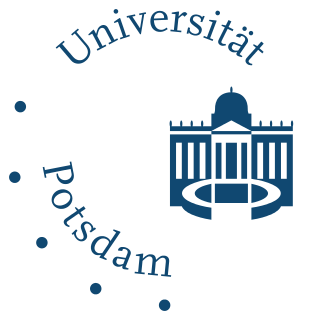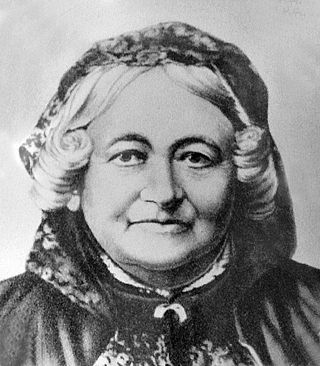Related Research Articles

Gymnasium, in the German education system, is the most advanced and highest of the three types of German secondary schools, the others being Hauptschule (lowest) and Realschule (middle). Gymnasium strongly emphasizes academic learning, comparable to the British grammar school system or with prep schools in the United States. A student attending Gymnasium is called a Gymnasiast. In 2009/10 there were 3,094 gymnasia in Germany, with c. 2,475,000 students, resulting in an average student number of 800 students per school.

The University of Potsdam is a public university in Potsdam, capital of the state of Brandenburg, northeastern Germany.

Wilhelm Jerusalem was an Austrian Jewish philosopher and pedagogue.
The Staatsexamen is a German government licensing examination that future physicians, dentists, physical therapists, teachers, research librarians, archivists, pharmacists, food chemists, psychotherapists and jurists as well as surveyors have to pass to be allowed to work in their profession. The examination is generally organized by government examination agencies which are under the authority of the responsible ministry. These agencies create examination commissions which consist of members of the examination agency, university professors and/or representatives from the professions. The Staatsexamina are both legally equivalent to a master's degree in the respective operating ranges.
A MJur is an academic degree in law awarded by some universities.

Carl Johann Adolf Alexander Witting was a German mathematician.

Karl Adolf Spieß was a German gymnast and educator who contributed to the development of school gymnastics for children of both sexes in Switzerland and Germany.
The Mannheim School of Law and Economics (MSLE) is among the largest of the five schools of the University of Mannheim, located in Mannheim, Baden-Württemberg, Germany. It was established in 2004 and consists of the two major departments: law and economics.

Henriette Goldschmidt (1825–1920) was a German Jewish feminist, pedagogist and social worker. She was one of the founders of the German Women's Association and worked to improve women's rights to access education and employment. As part of that effort, she founded the Society for Family Education and for People's Welfare and the first school offering higher education to women in Germany.
Oberstudienrat [oːbɐˈʃtuːdi̯ənˌʁaːt] (male) or Oberstudienrätin [oːbɐˈʃtuːdi̯ənˌʁɛːtɪn] is an official title for a certain rank of teacher in Germany, mostly employed in state-run grammar schools. An Oberstudienrat is a civil servant who belongs to the höherer Dienst, a category which is senior to the gehobener (elevated), the mittlerer (middle) and the einfacher (ordinary) Dienstgrad in the civil service. An Oberstudienrat is remunerated according to category "A 14", which means a salary of at least some 50 000 € per year, exactly as much as the lower-half Lieutenant Colonels, and after at least two but no more than eight years of service is roughly as much as the lowest rank of judges and state prosecutors. The equivalent title of an official in civil administration is Oberregierungsrat.
Studienrat [ˈʃtuːdi̯ənˌʁaːt] (male) or Studienrätin [ˈʃtuːdi̯ənˌʁɛːtɪn], literally meaning "Educational Councilor", is an official German title for an official or civil servant mostly in the regular state-owned grammar schools in Germany. It is a denomination for an official in the so-called "higher service" as opposed to the "elevated", "middle" and "lower" service ranks. This office is located on the 4th "service level" and remunerated according to "A 13" which marks the first salary level of "higher service" officials. Administrative officers of the same rank are usually called Regierungsrat. The Studienrat normally works as a teacher in higher education up to the Abitur which corresponds to A-Level exams. In addition, the Studienrat serves as a teacher at vocational schools alongside Gewerbeschulräten and Fachlehrern.

Sabine Sütterlin-Waack is a German lawyer and politician of the Christian Democratic Union (CDU). She currently serves as State Minister of the Interior, Municipal Affairs, Housing and Sports in the State of Schleswig-Holstein.

Pädagogische Hochschule Schwäbisch Gmünd is a public research university located in Schwäbisch Gmünd, Baden-Württemberg, Germany. Founded in 1825 as Pädagogisches Institut Schwäbisch Gmünd, it was transformed into a university in 1962 and now is a part of the Pädagogische Hochschulsystem Baden-Württemberg. It is one out of six such universities in the state of Baden-Württemberg.
Andreas Hedwig is a German archivist and since 2014 the head of the Hessian State Archive.
Friedhelm Brusniak is a German music educator

The (Allgemeine) Schulpflicht is a statutory regulation in Germany that obliges children and adolescents up to a certain age to attend a school. The Schulpflicht includes not only regular and punctual school attendance, but also participation in lessons and other school events, as well as doing homework.

Margret Rasfeld is a German author, activist and headmistress in active retirement. She is the co-founder and current managing director of the initiative Schule im Aufbruch and has been elected Ashoka Fellow since 2015. Rasfeld advocates a reorientation of school education according to the guidelines of the UNESCO campaign Education for sustainable development (ESD).
Günther Noll is a German music educator and university faculty.

Wilfried Gruhn is a German violinist, musicologist, music educator, and professor emeritus at universities in Germany and abroad. His focus is the music education of small children. He founded and directed the Gordon Institute of early childhood music learning in Freiburg in 2003. He is engaged in several international organisations such as International Society for Music Education (ISME) and the Internationale Leo Kestenberg Gesellschaft which published Leo Kestenberg's complete writings in six volumes.
Low German is a school subject in the northern German states Hamburg, Schleswig-Holstein, Mecklenburg-Western Pomerania and Bremen. In these states, it is part of Compulsory elective area, but in Bremen only as part of a pilot project. In Lower Saxony, Low German is partly integrated into the teaching of other subjects, there is no separate school subject. In North Rhine-Westphalia, Brandenburg and Saxony-Anhalt, the northern parts of which belong to the Low German language area, there are voluntary Low German courses, mainly in the form of working groups. Low German is not taught across the board in any of the federal states; it is only offered at individual schools in the northern German states.
References
- ↑ "Fakultät I: Studienrätin oder Studienrat im Hochschuldienst (Bes.-Gr. A 13 LBesO)" (in German). University of Siegen. 29 February 2012. Archived from the original on 2015-11-25. Retrieved 15 November 2015.
- ↑ Besoldungstabellen at Hessische Bezügestelle; published 20 November 2013; retrieved November 22, 2015
- ↑ Öffentlicher Dienst oeffentlicher-dienst.info; published 1 March 2015; retrieved November 15, 2015
- ↑ "Wie werde ich Studienrat im Hochschuldienst?" (in German). 26 May 2011. Retrieved 15 November 2015.
- ↑ "In den Mühlen der Bürokratie". Die Zeit (in German). Zeit. 25 October 1963. Retrieved 15 November 2015.
- ↑ Einstellung in den Vorbereitungsdienst at Hessische Lehrkräfteakademie - Kultusministerium Hessen (Ministry of Education of Hesse/Germany); published 1 January 2014; retrieved November 15, 2015
- ↑ Einstellung in den Vorbereitungsdienst Master Of Education – Master Abschluss für angehende Lehrer at master-of-education.com; published 7 February 2014; retrieved November 19, 2015
- ↑ Qualifikationsrahmen für deutsche Hoschulabschlüsse Kultusministerkonferenz Deutschland; published 21 April 2005; retrieved November 14, 2015
- ↑ Informationsblatt Staatsexamen Roger Port,University of Marburg; published 1 Juni 2009; retrieved November 15, 2015
- ↑ Ordnung des Vorbereitungsdienstes und der Staatsprüfung für Lehrämter an Schulen at Schulministerium NRW; published 10 April 2011; retrieved November 9, 2015
- ↑ Staatsexamen (Erste Staatsprüfung) at Zentrum für Lehrerinnen- und Lehrerbildung; published 18 May 2010; retrieved November 15, 2015
- ↑ Fakultät I: Studienrätin oder Studienrat im Hochschuldienst (Bes.-Gr. A 13 LBesO) Archived 2015-11-25 at the Wayback Machine at Universitat Siegen; published 29 February 2012; retrieved November 15, 2015
- ↑ Studienrat und Lehrer at ERGO - Beamten Kapital; published 3 July 2010; retrieved November 12, 2015
- ↑ Wie werden ich Studienrat im Hochschuldienst? at Academics.de; published 13 March 2012; retrieved November 15, 2015
- ↑ Studienrätin/Studienrat im Hochschuldienst für Chinesische Sprache at University Trier published by Rheinische Friedrich-Wilhelms-Universität Bonn; published 26 May 2011; retrieved November 15, 2015
- ↑ Vorbereitungsdienst am Studienseminar GHRF Frankfurt Roger Port, Studienseminar Frankfurt/Hessen; published 1 August 2006; retrieved November 13, 2015
- ↑ Ordnung der Laufbahnen der Lehrer an allgemeinbildenden und berufsbildenden Schulen at Recht Schleswig-Holstein Erl. vom 8. April 1971 (NBI. KM. Schl.-H. S. 158)1) mit späteren Änderungen - Zuletzt geändert durch Erlass vom 23. Januar 2009 (NBI.MBF.Schl.-H. 2009 S. 38); published 8 April 1971; retrieved November 15, 2015